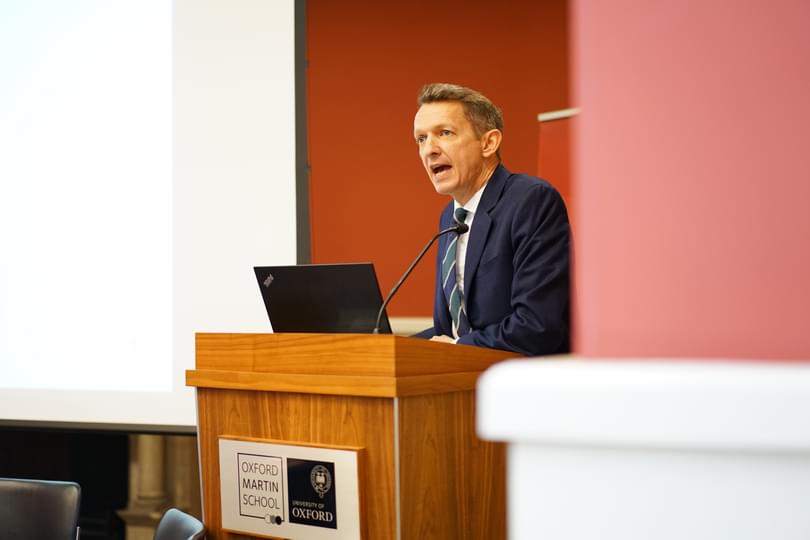
Income insecurity and its impact on households is the economic scourge of the early 21st century for the UK, the Bank of England’s chief economist told an audience at the Oxford Martin School today (28 February).
Andy Haldane was delivering the keynote address at ‘Income insecurity in the 21st Century’, convened by the Department of Social Policy and Intervention, INET Oxford and the Oxford Martin School. He contrasted the UK’s current high employment rates with those of the late 1970s and early 1980s, when one in nine people was out of work, but said that employment in the earlier period generally meant people were on an “escalator” of relentlessly rising wages, whereas they were now on a “travelator”.
“There was also a pretty clear distinction then, and in the decades that followed, between those out of work and those in it,” he said. “If you were in work you tended not to be in a situation of poverty. But research now shows that of people living in poverty, more are employed than unemployed.”
Mr Haldane went on to say that the past ten years had been a “lost decade” for many in terms of income, with real pay no higher than at the dawning of the 2008 global financial crisis, the longest period of flatlining since the start of the Industrial Revolution. This had been mirrored, he said, by flatlining UK productivity.
Changes in the nature of work - such as the growth of zero-hours contracts - had been a good thing for some, he said, with more flexible hours enabling people to combine study or home life with employment, or take a gradual route to employment rather than facing a “cliff edge”. But insecure jobs were often ones where people were paid less, he said, and pointed to income insecurity being associated with worse prospects for home ownership and less mobility within the job market, meaning people were less likely to move to a better paid job. This in turn meant new ideas were less likely to spread through the economy, he said, and that insecure working arrangements and poor quality jobs were possibly linked to the UK's productivity problem. Ultimately those suffering income insecurity were also more likely to have to take up high cost credit arrangements to make ends meet, he added.
He cited a number of pieces of recent research showing that people would be prepared to take a wage cut of 20% in order to avoid unpredictable hours, and that adults in debt were three times more likely to experience mental health problems.
Mr Haldane’s speech was followed by presentations by Matteo Richiardi, Professor of Economics and Director of EUROMOD at the University of Essex, and Jane Millar, Professor of Social Policy at the University of Bath, and concluded with a panel discussion chaired by Brian Nolan, Professor of Social Policy at the University of Oxford and Lead Researcher on the Oxford Martin School Programme on Inequality and Prosperity. The panel included the speakers and Fran Bennett, Senior Research and Teaching Fellow at the Department of Social Policy and Intervention, University of Oxford.